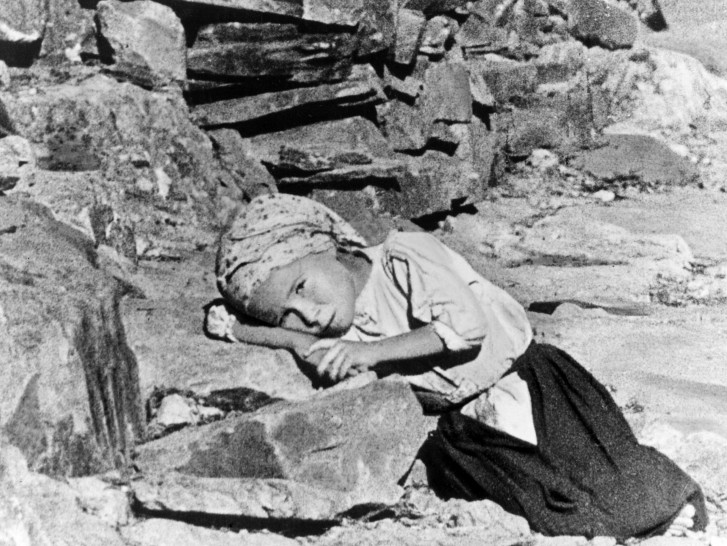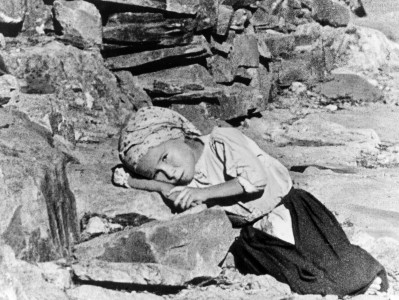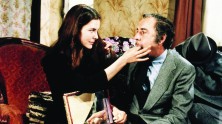
Land Without Bread
Simon of the Desert
Upon reading an ethnographic study of the poorest district of northern Spain, Las Hurdes, Buñuel decided to film there. The resulting work has remained controversial since its premiere, when it was banned by the Spanish government. Buñuel juxtaposes documentary images of human degradation, often posed or staged, with a voiceover commentary – written by the poet Pierre Unik – that combines travelogue exaggeration with a matter-of-fact recounting of the grim cost of rural poverty. Further, the soundtrack impassively adds music by Brahms and – in English-language versions at least – a flat-voiced reading of the commentary. The combination has led commentators to label the film everything from an impassioned cry of anger to a callous and callow documentary to a Surrealist parody of ethnography. – BG
Perched atop a pillar in the middle of the desert in eternal penance for six years, six months, and six days, Simon – inspired by 5th century Saint Simeon Stylites – seeks spiritual purification through this rather spectacular means. Doling out miracles, prophesies, and words of wisdom to his fickle followers, Simon’s encounters elicit a string of blasphemous comedy routines occasionally anticipating those of Monty Python. His faith is ritually tested by the devil who reappears in various feminine incarnations - accounting for most of the matter-of-fact surrealist moments that would become signature late Buñuel. With as ascetic an aesthetic as Simon’s, the last film Buñuel made while exiled in Mexico is a richly compact allegory. The cynical tone – balancing somewhere between mockery and sympathy – is consummated by a whirlwind ending which is as incredulously shocking as it is completely appropriate. – BG






















